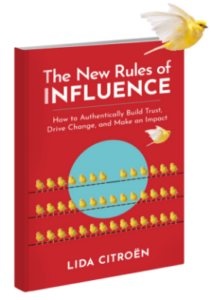From time to time, someone will tag me in an online rant about a political candidate, in a blog admitting their religious struggles, or in a meme highlighting the true character of friendship involving champagne-filled celebrations. Likely these friends and online contacts mean to include me in something thought-provoking, inspiring or funny, but I remove myself from the tag so my name isn’t associated with the content.

I am not being righteous or judgemental over what others post on their social networking timelines. In fact, I am proud to have an inclusive and embracing view on life and people – inviting individuals of all professions, beliefs, and practices into my circle. So, why wouldn’t I want to be associated with content that revolves around politics, religion or booze? Because it is my choice.
My social media posts are my own
I advocate that how you manage your brand online should be strategic, intentional and authentic. I am thoughtful and careful about what I post on Facebook and LinkedIn, and what I pin to Pinterest or upload to Instagram. Even though some of those platforms are more social and fun in nature, I can be judged by my content. I chose not to be judged by my views on politics, religion or partaking of a glass of Sauvignon Blanc from time to time.
Do I have views on politics, religion, and drinking?
Of course, I do! My faith is strong and fulfilling and guides how I live my life as a business owner, wife, mother, friend, neighbor, and daughter. My faith plays a compelling role in my priority-setting and the opportunities I say “yes” to. But I choose not to promote my views online.
I also have robust opinions on politics. I listen, research and vote, and I’m either disappointed or elated by election results, just like everyone else. I choose, however, to keep those views to myself because they aren’t germane to my work or to my ability to serve clients. Also, many of my clients fall on different ends of the political spectrum and I would not want them to be attracted to me or deterred from considering me because of my choice of TV network or policy discussion du jour. I see no reason to publicly proclaim my views or opinions on politics, but ask me about veterans’ issues, and I’m happy to share my thoughts.
Similarly, I have some clients who are in addiction recovery, or in the recovery business. Some of my clients have decided to make their recovery public and write books and speak publicly about their struggles and successes. Others choose to keep it quiet. One of my clients is an international expert in pioneering research and treatment of people with addiction issues. I decide not to post photos of me enjoying a glass of wine, or celebrating with a cocktail out of respect for them. And, because alcohol is not part of my brand.
Have I missed opportunities?
Sure. I’ve been asked by major news outlets to comment on candidates in elections. I’ve had close friends ask me to publicly advocate for causes I know I could positively impact. And I’ve probably not been invited to some lively parties, but that’s ok. I believe that what I post, comment on, and share online should reflect those values I choose to share with others. I do not need to share every value, idea, thought or belief I have… just like I don’t share every photo, success, or challenge I experience.
Rules for social media are healthy
I advise my clients to develop rules for how and where they will show up online. Rules provide clarity when facing tough choices (should I post that cartoon or could it offend someone I care about?) If you stay consistent with your rules, your audience will trust and respect them.


